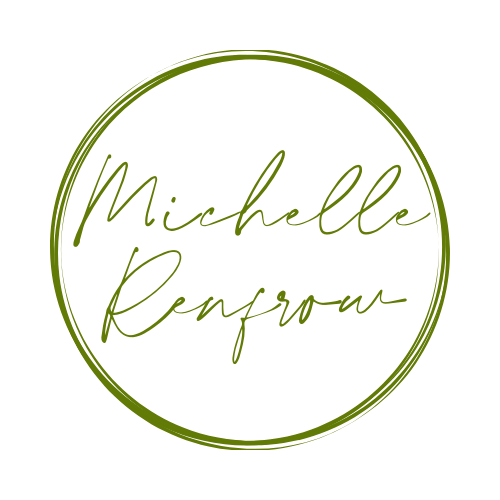Journaling is the practice of writing down your thoughts and feelings as you navigate your daily life. The good thing is that there is no right or wrong way to journal. It’s something between you and pages of your journal and it just doesn’t matter. Some days journaling is just writing down what you did that day. Sometimes journaling is about your top ten list of books, music, foods etc…
What are the benefits of journaling?
According to the University of Rochester medical center’s website they say, “One of the ways to deal with any overwhelming emotion is to find a healthy way to express yourself. This makes a journal a helpful tool in managing your mental health. Journaling can help you:
- Manage anxiety
- Reduce stress
- Cope with depression
Journaling helps control your symptoms and improve your mood by:
- Helping you prioritize problems, fears, and concerns
- Tracking any symptoms day-to-day so that you can recognize triggers and learn ways to better control them
- Providing an opportunity for positive self-talk and identifying negative thoughts and behaviors
Benefits of Journaling in Daily Life
When you have a problem and you’re stressed, keeping a journal can help you identify what’s causing that stress or anxiety. Once you’ve identified your stressors, you can work on a plan to resolve the problems and reduce your stress.
Keep in mind that journaling is just one aspect of a healthy lifestyle for better managing stress, anxiety, and mental health conditions. To get the most benefits, be sure you also:
- Relax and meditate each day.
- Eat a healthy, balanced diet.
- Exercise regularly—get in some activity every day.
- Treat yourself to plenty of sleep each night.
- Stay away from alcohol and drugs

The website does a great job outlining the benefits, which if you’re like me, you really need these tools.
How do you get started journaling?
The Betterhelp website says you should try these steps to get started,”How to start journaling (and make it a habit) Starting a journal can seem intimidating at first. Like any other habit, it takes a while before it becomes a repetitive part of your lifestyle.
Here are some journaling tips to help you start and keep a journal.
1. Find the journaling techniques that work for you Many people prefer keeping a paper journal because it helps them develop and express ideas more clearly. But putting pen to paper isn’t the only way to journal. When you first begin writing, it’s important to find the method that works best for you. You may find that the ease of using a laptop makes journaling more enjoyable for you. You also don’t have to limit yourself to one method. Say you prefer handwriting, but you get a burst of inspiration during your morning commute on the subway. In that case, you can use the notes app on your phone to jot down your thoughts before you forget them.
2. Let go of judgments (write for your eyes only) There’s no right or wrong way to journal. When you’re writing, it’s important to practice self-compassion and leave your inner critic at the door. Journaling is a judgment-free zone. Don’t worry about things like grammar or spelling. You’re writing for your eyes only, not for an audience. When you’re self-critical or afraid someone will read your journal, you tend to censor yourself and be less authentic and honest.
3. Keep expectations realistic
When you first begin journaling, don’t expect to write pages upon pages filled with insightful thoughts. Having unrealistic expectations can actually discourage you from continuing your journaling practice because you don’t immediately see progress. Like any other habit, you need to set realistic goals and take baby steps in order to see results.
4. Create a writing routine It’s easy to write on days when you’re feeling inspired and motivated. But what about when you’re not?Creating a writing routine and scheduling journaling time can help you stay on track, even on days when you’re feeling uninspired. For example, you can set time aside every morning after breakfast or every evening before bed, even if it’s just for five to ten minutes. This time blocking method allows you to prioritize journaling and incorporate it into your schedule.
- Journal about anything that comes to mind When it comes to what you want to write about, the possibilities are limitless. You can write about your day, your thoughts and emotions, or something that inspired you. You can also use it as an outlet to release heavy emotions like anger, frustration, or sadness. Putting these feelings down on paper can free you from having them lingering in your mind. In her book “The Artist’s Way,” author Julia Cameron talks about one method that can help you journal if you’re not sure where to start. It’s called the ‘Morning Pages.’ Each day after you wake up, open your journal and start writing three pages filled with any thoughts that come to your mind. This stream-of-consciousness writing has been therapeutic for those who have tried it. It’s helped them process emotions, gain clarity, and unlock their creative side.
6. Use journal prompts There will be days when you’re staring at your journal and have no idea what to write about. Don’t fret — there are countless journaling prompts online that can help you overcome your writer’s block. Here’s a list of things to journal about on the days you feel blocked:
- A list of things and people you’re grateful for
- A recent situation that challenged you
- An (unsent) letter to someone in your life
- Small things that bring you joy throughout the day
- The best decision you’ve ever made
- Daily positive affirmations
7. Get creative Don’t be afraid to express yourself and be creative. Journal writing isn’t just prose. It can be poetry, sketching, art, lyrics, or anything else that allows you to express yourself.”
Here are some prompts I found you can use to get you going.
Journaling Prompts for Self-Discovery:
- What do I know to be true that I didn’t know a year ago?
- What distractions get in the way of being my most productive?
- When do I feel most in tune with myself?
- If someone described me, what would they say?
- What can wait until next week?
- How does every part of my body feel in this moment?
Journaling Prompts for Managing Emotions:
- What emotions am I holding on to?
- How can I detach or neutralize this emotion?
- Why am I doing X?
- Why am I feeling this way?
- What is causing these feelings?
- Have I tried to take my ego out of the situation?
- How can I detach my emotions from the behavior of others?
- Did I use healthy boundaries before I began feeling this way?
Journaling Prompts for Anxiety and Depression:
- What hurts right now? How can I find relief?
- When I look in the mirror, what do I see?
- What are the things in my home that are the most “me”?
- What am I doing right now?
- What happened before I felt a shift in my mood?
- Write down an entire list of what you are worried about. Star the items that you know are 100% true and not solely a feeling.
If you aren’t convinced, research shows journaling can greatly improve your overall well-being. Now grab a notebook, some tea (or whiskey?), and let the words fly.
Get some paper and get started! Happy Arting!

